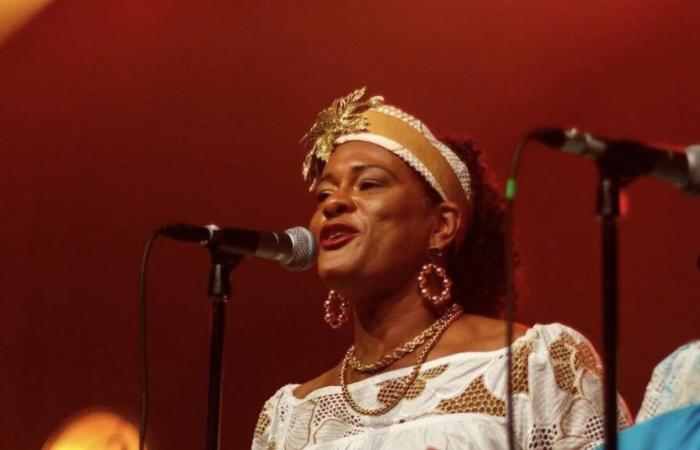
A little melody, a moment of communion, which accompanies the arrival of the end-of-year festivities, in the Antilles and in Guyana, the Christmas carol are unmissable. These hymn concerts organized each year delight young and old alike. In France, in the heart of winter, the tradition continues, and there is no shortage of concerts by groups who travel to the diaspora.
If we talk about traditions, the Christmas carol is definitely there, and the participation rates for this type of event are similar to those of carnival, that is to say very high.
The Christmas carol represents the opportunity for a time of very strong cohesion. And if the tradition was born in the continuity of the evangelization of enslaved people, and therefore bears disastrous origins, the West Indian communities were able to seize it and reappropriate it, to make it an incomparable moment of communion.
A tradition anchored in West Indian cultures
Pierre Gobing, president of the association and the flagship group Almost, he fervently describes the benefits. “ It is a celebration full of life, warmth, conviviality, sharing and love. It represents a strong cultural link and a means of transmitting traditions. The songs are often in Creole, which strengthens the linguistic and cultural identity of the communities. »
It's a way to raise awareness of the diversity of Christmas traditions around the world.
In mainland France, where more than 600,000 overseas residents are present, events of this type are numerous and very popular. For the president of the association, it is essential to achieve these performances here too. They participate in “the promotion and transmission of rich Creole cultural traditions to a wide audience, and the preservation of our heritage. It's a way to raise awareness of the diversity of Christmas traditions around the world. »
In addition to this, it is also about strengthening connections. “This event creates a space where the Antillo-Guyanese communities in France can come together, celebrate and get together. There is also an obvious artistic enrichment due to musical diversity: nwèl chants enrich the French musical landscape with unique rhythms and sounds. »
As the songs are often accompanied by a good friendly dinner, it is also an opportunity to share culinary traditions. “Offering Nwel songs to the French public contributes to cultural richness and living together,” adds Pierre Gobing.
A sweet childhood memory
Joanna, 28 years old, and originally from Guadeloupe, has always loved this tradition. The atmosphere is always there. We meet up with family and friends, singing joyful songs, in Creole or French, with legendary groups like Kasika and Benzo. describes the young woman.
« When I was younger, every Christmas, uncles, aunts, cousins and cousins would gather at my house. We all left together on foot with our benches and chairs to go to the great Chanté Nwel », she recalls, not without emotion. “ It was so good: one of my best memories of this period which lasted several years. My whole childhood, in fact, and even a little more. »
Maintain tradition, here and there
But, since she arrived in mainland France, it's not quite the same thing. “ Here, it's different, but we still find the West Indian community coming together on this occasion, and it's really great. »
In Lyon, where the young woman has been living for several years, she is having some difficulty finding an experience that matches what she has known. “It's mainly songs from Martinique that are played, so it's true that I find myself there a little less, and I don't have my family and my friends with whom I used to celebrate this period. Despite all that, I still find the atmosphere and ambiance that I love! »
Feel close to your culture
For Teddy, 37, a school teacher and born in mainland France, it is a way of feeling close to his original culture. “ The first time I went there was with friends from Guadeloupe. I wanted to try the experience because it is also a culturally interesting moment that allows you to spend time with the community, even here. I think we need these moments that allow us to feel a little like family. The atmosphere is very warm, even when you don't know the people. »
Christmas was one of the times when my parents really wanted to have Caribbean culture at home.
For the young man, the Christmas carol were passed down in a special way, unique to his family. “ I never did it as such with my parents, because they put on their own CD of hymns, so we did our Chanté Nwèl at home, so to speak. » A form of transmission which allowed him not to feel out of place. “I know all the hymns, and the first time I went to a Chanté Nwèl, I had already gotten into the habit of singing with my family. Christmas was one of the times when my parents really wanted to have Caribbean culture in the house. »
A tradition that the young man holds dear, apart from any religious reference. “ What is quite paradoxical is that I am not a believer. My parents are Catholic and practicing, but I am not. Despite everything, I really appreciate these moments, it's really part of West Indian folklore. »
What future for the tradition?
« I am convinced that the tradition of singing nwel has a good chance of continuing through generations for several reasons. First, there is family transmission: traditions like nwel singing are often passed down from generation to generation within families. Children grow up participating in this celebration, which strengthens their attachment to it. Then, it is also an integral part of the West Indian cultural identity. This deep attachment promotes its continuity,” says Pierre Pierre Gobing.
A tradition, yes, but which is not fixed, as he explains. “Of course, traditions evolve over time. Nwel singing can be modernized and adapted to the tastes and practices of younger generations while retaining the essence. And, the use of social networks and sharing platforms can help to disseminate and popularize this tradition to a wider audience, of all ages. » A tradition which therefore has a bright future ahead of it.
Amber Couvin





